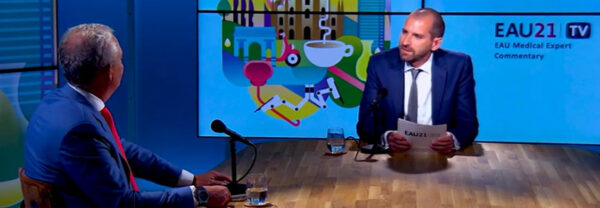ERUS18: A push for enhanced patient recovery programme
The fifteenth annual meeting of the EAU Robotic Urology Section is taking place this September in Marseille.
The fifteenth annual meeting of the EAU Robotic Urology Section is taking place this September in Marseille, on France’s Mediterranean coast. We spoke to Dr. Jochen Walz (Marseille, FR), chairman of the ERUS18 Local Organising Committee and de facto host of the meeting, about his plans for the meeting and the preliminary scientific programme.
“The slogan for ERUS18 is ‘Optimising clinical pathways with robotic surgery’, which reflects the ERAS programme that we are trying to popularise across Europe,” Dr. Walz emphasizes. ERAS stands for “Enhanced Recovery After Surgery”, although Walz thinks “Around Surgery” might be a term that better reflects the programme.
The three pillars of ERAS are: minimally invasive surgery, the ‘active patient’ and a standardized protocol. “As robotic surgeons, we have much to gain from this approach. We’ve seen ERAS implemented in colorectal surgery, and it’s been in discussion for bladder cancer for several years now. As ERUS, we’d like to see it expanded to other procedures.”
“ERAS is a multidisciplinary approach that joins surgeons and anaesthesiologists in setting up an optimal pathway to manage patients: both in preparing patients for surgery, and patient management during and after surgery,” Walz explains. “This helps improve the outcome for the patient. Key is the standardization of the pathway, perhaps even more important than optimising it. ERAS will be an important part of the first half of the ERUS18 meeting.”
“We will be showcasing the multidisciplinary, or rather multiprofessional approach of ERAS by inviting anaesthesiologists and nurses to speak at ERUS18. Together, we’ll be explaining the different modules, how each profession is involved. Nurses are most closely involved with the patient, coordinating prehabilitation, the management before and after surgery, and generally mobilizing the patient. It’s impossible to implement ERAS without the involvement of nurses or anaesthesiologists.”
ERUS18 is set to showcase demonstrations of how the protocol is already working in some centres. Walz: “At our institution in Marseille, implementation of ERAS was a major game changer. We will be hearing other personal experiences. We hope to create a manual where all the different tools and protocols are collected and summarized, so that people can apply these tools and protocols at their home institutions.”
Live surgery
As a meeting devoted solely to all aspects of robotic urology, delegates can of course expect the best in live surgery demonstrations in Marseille. Up-to-date scientific presentations and discussions will be mixed with the live surgery to create a packed, non-stop scientific programme.
Surgery will primarily be performed at Walz’s own Institut Paoli-Calmettes, as well as at the Hopital Nord, a second academic centre in Marseille. Walz: “After considering Paris or Aalst as a location to test long-distance transmission, we finally decided that the ideal situation would be a second centre in Marseille, which allows the performing surgeons to also take part in the meeting.”
As for which procedures delegates can expect in September? “We have set up an interesting programme of the main urological robot-assisted procedures. As a cancer centre, we focus on oncological cases such as prostatectomy, partial nephrectomy, cystectomy, and lymph node dissections. However, there will be also several cases of benign and reconstructive surgery, all done by international experts.”
In terms of demonstrations of new technology, most of the innovations will be seen at the technical exhibition, rather than in the operating theatres. “We might be able to show delegates the new single-port Intuitive system, but only as a demo model, not an official launch.”
Apart from the live surgery and special attention for ERAS, ERUS18 will feature a block that looks at the ever-changing economics of robotic surgery. Walz postulates that as medical treatment for metastatic PCa is getting more expensive, robotic surgery looks more affordable than it did even a couple years ago.
The main ERUS18 programme will take place on 6-7 September. On September 5th, there will be a special day for young (robotic) urologists. In the morning there is the Junior ERUS-YAU Programme, and the afternoon is reserved for robotic-related courses by the European School of Urology and the Technology Forum with a look into the future of robotic surgery.
“ERUS18 will be an attractive and interesting meeting. It’s a nice time of year in Marseille, so we can offer a nice package for science as well as social events. Marseille definitely is worth a visit for ERUS18.”
Registration is now open for ERUS18! The early bird fee is available until June 1st! Register here >



